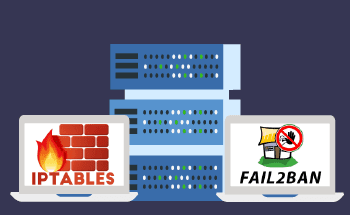Which SSD is better for VPS: SATA or NVMe
13:28, 07.06.2021
In this article, we will take a detailed look at SSD for VPS: what it is, what benefits it provides and who benefits from it. Also, we will clearly compare SSD on SATA 3 with NVMe storage devices, which are connected via PCI-e interface.
Modern virtual servers in most cases are equipped with solid-state drives. They are about 10-20 times faster than standard hard drives, which is a definite plus for the client renting the server:
- SSDs have no moving parts, so the likelihood of physical damage to the drive is minimized - such servers work more stably;
- Exchange of data packets with the visitors is faster, which improves their user experience;
- High fault tolerance even at critically high loads on the website.
If you aim to create a fast and convenient site or an online store, you should choose only a VPS on SSD. The only question is which type is better: standard SSDs with a SATA 3 interface, or solid-state drives with a high-speed PCI Express (NVMe) bus connection.
The difference between SATA 3 SSDs and PCI-e SSDs
SSDs themselves are incredibly fast, and the limitations of SSD speed have so far been limited by the connection interface. Standard Solid-State Drives connect to the server using a SATA 3 interface, which has a maximum bandwidth of 600 Mbytes per second. That is, no matter how fast the drive itself is, the data transfer rate will be limited by this value.
NVMe on VPS, on the other hand, is many times faster, since the connection is made on a high-speed PCI-Express bus. These devices can queue more data thanks to access to more PCI-e lines, resulting in huge performance gains in sequential read operations, up to 6,000MB/s. Sequential write speeds of up to 4,500MB/s can be achieved, which is 5-6x faster than SATA 3.0 SSDs.
Single line transfer speeds will already depend on the PCI Express version, but PCI Express 3.0 is most commonly used, with a throughput of 15.8 GB/s on the x16 line. No more is required for today's SSDs because even the PCI-e 3.0 version provides excessive bandwidth for them.
Comparing SSDs on SATA 3 and NVMe
If we compare SSD-based VDS with SATA 3 and NVMe in terms of key characteristics, we get the following picture:
- SSD NVMe
- Connection interface SATA III PCI-Express 3.0
- Maximum performance (IOPS) ~60 000 ~1 400 000
- MTBF (hours) ~1 500 000 1 500 000 – 2 000 000
- S.M.A.R.T. support Yes Yes
- Average read/write speed 500 MB/s read, 450 MB/s write 3500 MB/s read, 2200 MB/s write
- Number of management queues 32 concurrent queues 65 536 concurrent queues
Solid-state drives with NVMe technology benefit from lower latency and increased throughput. For this reason, VDS/VPS hosting on NVMe is much more advantageous for customers who want to achieve maximum performance for their application or web resource.
Advantages of VPS on NVMe
In addition to greater performance, VDS servers on NVMe provide a number of other benefits:
- Intelligent queuing and workload distribution make these storage devices ideal for data centers and large enterprises.
- AI systems and machine learning algorithms have high processing speed and performance requirements, especially in terms of bandwidth. NVMe fully meets this demand.
- Increased performance is also achieved because NVMe addresses the processor directly through PCI-Express lines, which reduces I/O latency.
SSD-based VPS hosting is great for multi-threaded applications, large online stores and other companies that use heavily loaded relational databases. These drives will provide unprecedented performance and responsiveness for your needs.


